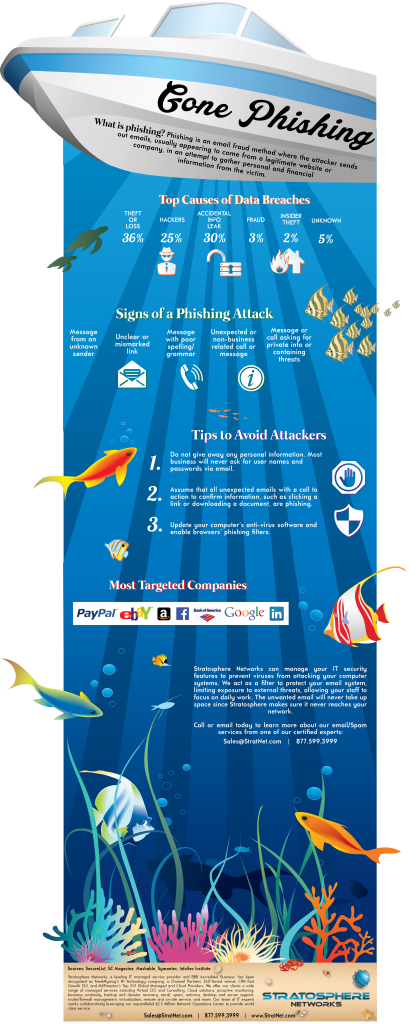Phishing and online scams have been around for ages, but lately there’s been an increase of attacks on mobile phones. Spammers and phishers have developed methods of breaking into cell phones by sending malicious emails, text messages and even sending infected links through apps. They’ll then steal contact information to spam everyone in your phone book as well as access financial information through banking activity done on your phone.
To avoid being a phishing bait, here are some key ways to keep your information safe:
Be Able to Identify a Bogus Email
If you receive an email from a person you don’t know or company you’ve never heard of, be cautious when opening it especially when on your cell phone. If there is a ‘free’ offer that directs you to click on a link, don’t. The link could take you to a malicious site or could lead to downloading unwanted software or a virus.
Do Not Access Your Bank Information Through a Link in an Email
Phishers know how to make realistic looking websites that will mimic your bank’s actual website. By clicking on a fraudulent link to these malicious websites, phishers can gain all of your financial information. Instead, travel to your bank’s website on your own. Many banks also have two-step verification so you’ll know if the website is legitimate or not.
Always Have Antivirus Protection on Your Computer
You should always have antivirus software on your computer to be safe. If you’re going to download a program, make sure it comes from a trusted website. Here’s a list of the top 10 antivirus software of 2014.
Be Careful of Spam on Your Cell Phone
If you receive a message from an unknown number, don’t click on any links included in the content. As mentioned above, phishers have started using cell phone apps along with the more traditional email methods. Be wary of spam messages sent through WhatsApp, Facebook Messenger and Viber.
Because technology is always evolving, you can expect phishing and hacking to do the same. Take precautions before a cyber-attack happens, because some damage is hard to reverse.



